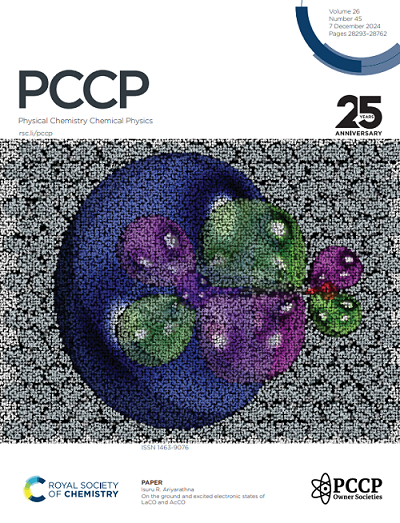Variable-temperature token sampling in decoder-GPT molecule-generation can produce more robust and potent virtual screening libraries
IF 2.9
3区 化学
Q3 CHEMISTRY, PHYSICAL
引用次数: 0
Abstract
Token generation in generative pretrained transformers (GPTs) that produce text, code, or molecules often use conventional approaches such as greedy decoding, temperature-based sampling, or top-k or top-p techniques. This work shows that for a model trained to generate inhibitors of the enzyme HMG-Coenzyme-A reductase, a variable temperature approach using a temperature ramp during the inference process produces larger sets of molecules (screening libraries) than those produced by either greedy decoding or single-temperature-based sampling. These libraries also have lower predicted IC50 values, lower docking scores, and lower synthetic accessibility scores than libraries produced by the other sampling techniques, especially when used with very short prompt-lengths. This work explores several variable-temperature schemes when generating molecules with a GPT and recommends a sigmoidal temperature ramp early in the generation process.在解码器- gpt分子生成中,变温令牌采样可以产生更强大的虚拟筛选库
生成文本、代码或分子的生成式预训练转换器(gpt)中的令牌生成通常使用贪婪解码、基于温度的采样或top-k或top-p技术等传统方法。这项工作表明,对于训练生成酶hmg -辅酶- a还原酶抑制剂的模型,在推理过程中使用温度斜坡的变温度方法产生的分子集(筛选库)比贪婪解码或基于单一温度的采样产生的分子集(筛选库)更大。与其他采样技术产生的库相比,这些库的IC50预测值、对接分数和综合可访问性分数也较低,尤其是在使用非常短的提示长度时。本研究探索了几种使用GPT生成分子的变温方案,并建议在生成过程的早期采用s型温度坡道。
本文章由计算机程序翻译,如有差异,请以英文原文为准。
求助全文
约1分钟内获得全文
求助全文
来源期刊

Physical Chemistry Chemical Physics
化学-物理:原子、分子和化学物理
CiteScore
5.50
自引率
9.10%
发文量
2675
审稿时长
2.0 months
期刊介绍:
Physical Chemistry Chemical Physics (PCCP) is an international journal co-owned by 19 physical chemistry and physics societies from around the world. This journal publishes original, cutting-edge research in physical chemistry, chemical physics and biophysical chemistry. To be suitable for publication in PCCP, articles must include significant innovation and/or insight into physical chemistry; this is the most important criterion that reviewers and Editors will judge against when evaluating submissions.
The journal has a broad scope and welcomes contributions spanning experiment, theory, computation and data science. Topical coverage includes spectroscopy, dynamics, kinetics, statistical mechanics, thermodynamics, electrochemistry, catalysis, surface science, quantum mechanics, quantum computing and machine learning. Interdisciplinary research areas such as polymers and soft matter, materials, nanoscience, energy, surfaces/interfaces, and biophysical chemistry are welcomed if they demonstrate significant innovation and/or insight into physical chemistry. Joined experimental/theoretical studies are particularly appreciated when complementary and based on up-to-date approaches.
 求助内容:
求助内容: 应助结果提醒方式:
应助结果提醒方式:


